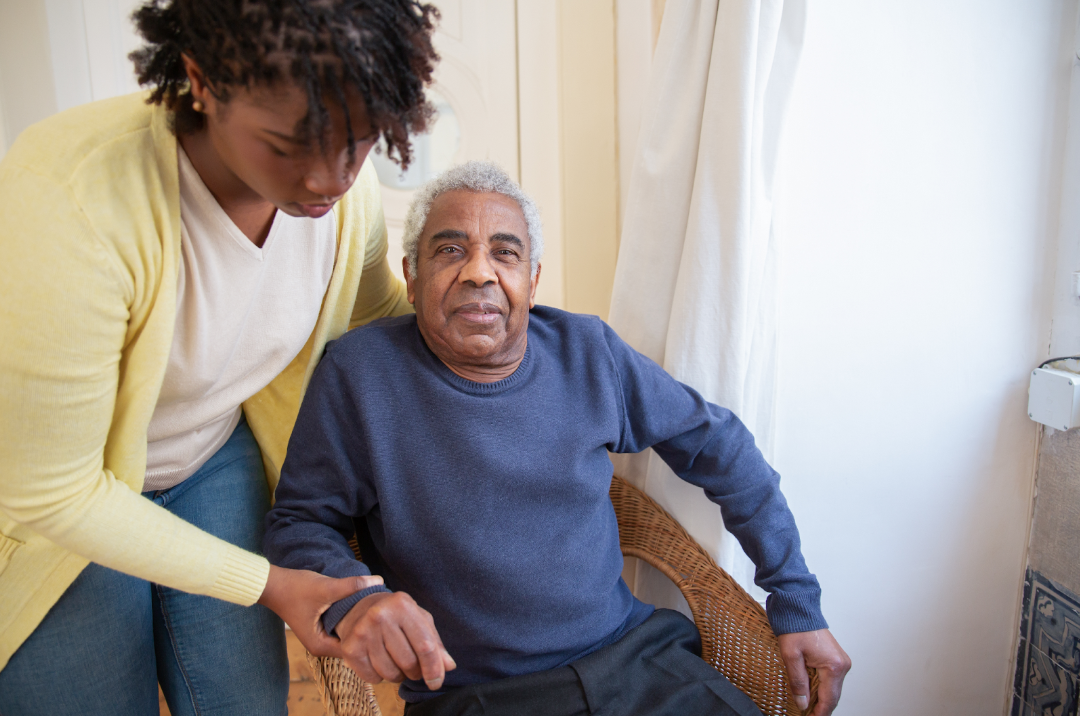The Ultimate Guide To Taking Care Of A Loved One With Dementia

The capacity of the brain to reason, think, and recall is impacted by dementia, a degenerative neurological condition. It can considerably impact a person's everyday life, making it difficult for them to do even the most elementary chores. To support and make sure that your loved one receives the care they require, you, as the caregiver, play a crucial role.
No matter what stage of dementia they are experiencing, there are always ways you can show them your love and support. We've offered information on what you might encounter while caring for a dementia patient, as well as some useful dementia caregiver advice, to assist you in navigating the caregiving process.
Make the Surroundings Secure and Safe
Memory loss, confusion, and disorientation are common dementia symptoms. To ensure their well-being, a safe and secure atmosphere must be established. Among the approaches to establishing a secure environment are: removing tripping hazards and clutter; installing grab bars and railings in restrooms and lobbies; adding labels to cabinets and drawers; securing dangerous things like cleaning supplies or medicines; putting locks on windows and doors to stop them from wandering. Additionally, the Sutherland Shire dementia care solution may also provide security and safety. For a variety of reasons, it is occasionally hard to eliminate every potential threat from your house. Sometimes you simply need some assistance.
As a result, Sutherland Shire's dementia care solution provides completely secure lodging with a dementia caregiver. This way, you'll be at peace and won't worry about your loved one.
Communicate Effectively
Communication must be approached with love and sensitivity when providing care for someone who has dementia. It's crucial to be compassionate and patient, keeping in mind that they might be feeling confused and frustrated. To uphold a sense of respect and dignity for your loved one, try to adopt a warm and soothing tone of voice and positive language. You may help establish a secure and comforting environment for your loved one by communicating with kindness and gentleness.
Establish a Routine
For a person suffering from dementia, establishing a routine can be helpful since it can offer structure and consistency. Make an effort to create regular schedules for activities, food, and medication. A schedule can give your loved one a feeling of predictability and familiarity while reducing confusion, worry, and agitation. Additionally, it's critical to be adaptable and flexible because demands and preferences can change over time.
Having a routine can also help you, as a caregiver, manage the caregiving process since it can help you organize and prioritize your chores and obligations. A routine can give you and your loved one a sense of order and organization, which can help you feel less stressed and provide better care overall.
Manage Behavioral Changes
Aggression, anger, and roaming are a few behavioral changes that dementia can bring about. Although managing these changes can be difficult, there are methods you can employ to stop or control them. Several instances include:
- finding the causes of behavior changes
- shifting the focus of the individual to another undertaking
- fostering a tranquil and encouraging environment
- using medication while being supervised by a healthcare provider.

Encourage Independence
A person with dementia can keep their sense of self, dignity, and worth by being supported in their independence. Giving them the chance to participate in events and make decisions might help them feel more independent and in charge. To promote their independence, try to divide jobs into manageable steps, offer cues and prompts, and give them an appreciation for their efforts. Striking a balance between encouraging independence and safeguarding their safety and well-being is crucial.
Provide Social Stimulation
Giving someone with dementia social stimulation is crucial since it can enhance their cognitive performance, mood, and general well-being. Encourage social activities such as receiving visitors from family and friends, taking part in activities with others, and pursuing interests or hobbies. You can also think about signing them up for a support group for people with dementia so they can communicate with others who share their experiences. It's crucial to be sympathetic and patient and to modify social activities to fit their tastes and capabilities.
Seek Professional Need
A healthcare expert can aid with the condition's diagnosis and management, provide medicine, and offer guidance and support to carers. They can also recommend additional experts who can assist with certain dementia-related issues, such as occupational therapists or speech-language pathologists. Support groups or therapy can also provide guidance in coping with the pressures of caregiving as well as emotional support. By getting expert assistance, you can make sure that your loved one gets the finest care and support possible, as well as that you get the support and resources you need to give that care.
This dentist who does Invisalign and dental implants in Chattanooga also recommends that it's best for patients to have regular dental checkups at the early stages of dementia. This is to prevent any complicated oral surgery later on.
It can be difficult and complex to care for a loved one who has dementia. However, you can make sure that your loved one receives the finest care and quality of life possible by putting these methods into practice.
In the end, you can help your loved one live a better quality of life and make the caregiving process easier on everyone by being proactive and compassionate in your approach to their care.






